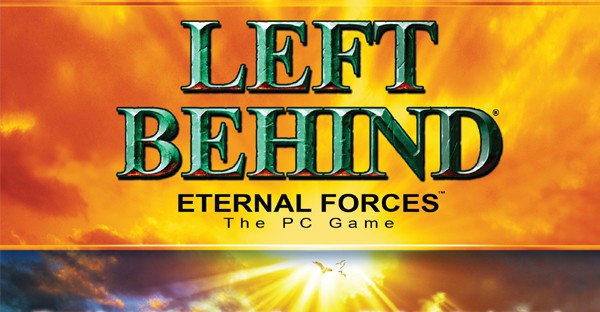
From across the room, my phone chirps a reminder that someone has just replied to my Tweet.
I jump up and grab it to see the newest message and then scroll through my newsfeed for the latest news and updates.
As Nicholas Carr argues in his insightful book The Shallows: What the Internet is Doing to Our Brains, we humans quickly become addicted to what’s new. We get a little neurochemical reward when a new message pops into our inbox or our iPhones cheerily alert us that someone’s tweeting at us.
Carr argues that our ability to pay attention to longer-form reading—blog posts or articles longer than 900 words or so, books, etc.—is gradually being undermined by our addiction to the instant gratification we get from Facebook alerts and new text messages.
As Maria Popova (creator and curator of the popular Brain Pickings blog) pointed out in a recent interview for Copyblogger, online culture “fetishizes the new(s),” forgetting all the knowledge and wisdom that’s come before us.
Popova calls this “our presentism bias,” which is “anchored in the belief that if it isn’t at the top of Google, it doesn’t matter, and if it isn’t Googleable at all, it doesn’t exist.”
As Popova points out, this “presentism” is often a form of arrogance—one that assumes that “no one has ever grappled with the issues we’re grappling with. Which of course is tragically untrue.”
In Christian culture, this can translate into thinking that the current “hot-button” theological or Church issues are things Christians have never dealt with before.
Ours is a culture where people rush to tweet articles even before they’ve finished reading them, and in the Christian blog and Twittersphere, many of us find ourselves feeling like Rachel Held Evans, who recently confessed to feeling a bit out of her depth when called upon to comment on theological matters and the current state of the church at Christian colleges and on CNN: “[I’m] upsetting apple carts I didn’t even mean to upset, apparently making theological statements I didn’t even know existed.”
This idea reminds me of an essay of C.S. Lewis’ introducing a very old book by a third century church father, Athanasius of Alexandria. Presciently—almost as if he were aware of all the heated blog-and-Twittersphere battles over women’s roles in the church, modesty, sexuality, sovereignty or the atonement—Lewis argues that Christians need “a standard of plain, central Christianity … which puts the controversies of the moment in their proper perspective.”
And to put controversies of the moment in their proper perspective, Lewis argues we need to read old books.
We need old books not because they are necessarily better or somehow infallible (“People were no cleverer then than they are now; they made as many mistakes as we,” Lewis writes, “but not the same mistakes”) but because to read only new books is to join “at 11 o’clock a conversation that began at eight,” and thus to be unable to understand fully all that is going on.
The New Testament itself is in deep conversation with the Old Testament; it’s difficult to understand the former without the latter; Christianity is a conversation that has been going on for two thousand years.
We can’t even hope to wade into deeper waters in thinking about faith if all we’re reading are the writings of the moment.
As someone who’s still trying to wade into deeper waters, I asked a few experienced readers what resources they would recommend to Christians who’d like to avoid “presentism” in their own reading and thinking about faith, and I’d like to share some of their insights for those of you eager to move beyond the shallows.
Author LaVonne Neff, who regularly reviews books in The Christian Century and on her blogs, The Neff Review and Lively Dust, suggested that perhaps the best source for Christians—even the kind who don’t darken the doors of liturgical churches—is the liturgy: The Book of Common Prayer, fixed hour prayer, even a Catholic prayer book or missal.
“These are all things that go back practically to the founding of Christianity,” LaVonne told me, “and have become part of the common treasury of ideas and quotations, along with the Bible and Shakespeare.”
Even if you’ve never considered picking up a prayer book before, you may be pleasantly surprised by the richness to be found in these resources, which are all heavily based upon the Psalms—a rich prayer book in its own right, of which Augustine said that “all things written herein serve to mirror ourselves.”
Not incidentally, LaVonne’s husband, David Neff, the recently retired editor in chief of Christianity Today, writes a standing column in the magazine called Past Imperfect, the guiding principle behind which is the simple but profound idea that when we encounter a matter of present concern—immigration, say, or a war we may regard as unjust—we ought to acquaint ourselves with the history of the discussion.
Of course, as an author, I don’t want people to give up reading new books. But I generally agree with C.S. Lewis on this point:
“It is a good rule, after reading a new book, never to allow yourself another new one till you have read an old one in between. If that is too much for you, you should at least read one old one to every three new ones.”
And sometimes, maybe, we need to look up from both screens and books to pay attention to what medieval Christians called “the book of nature.”
Chris Smith, editor of the endlessly rich Englewood Review of Books (which, wonderfully, reviews “old” books right along with new ones) told me:
“Above all the resource that doesn’t get enough credence in our age is the glorious wonder of our own particular places. Even if we live in the drabbest of cities, the life of creation is forever blossoming all around us.”
Smith insists that by loving the actual places that we live is transformative and shaping in a similar way that books can be transformative and shaping:
“Like any other text, our place is a text that will read and interpret us to the extent that we read and interpret it. Allowing ourselves to be rooted and flourish within them [can offer] a radical vision for the transforming of our world—our economics, our politics, our health and well-being.”
In this time, when we all can air our opinions the very moment they’re (half) formed, slowing down and spending time with old books can move us—and our faith—into deeper, stiller waters.






















